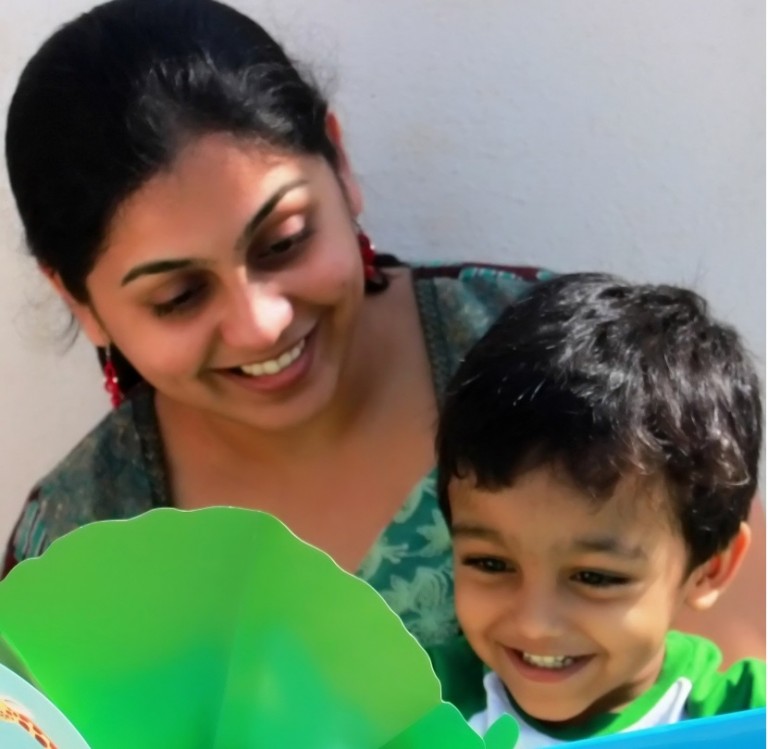
The relationship between parents and their children is a deeply important one. Ideally, parents and children would mutually support and respect one another and hold a bond free of anger and tension. But both children and parents are human, and humans are far from ideal. This article aims to teach you to build and cultivate the best parent-child relationship possible, regardless of imperfections in you or your offspring.
- Treat your child the way you would treat your best friend.
Many years ago, Psychologist Dr. Haim Ginott suggested that parents should establish the same level of civility with their children that they do with their friends. For example, if your friend leaves her purse at your house and calls you feeling embarrassed, you most likely will be empathic, tell her not to worry and say something to make her feel better. On the other hand, if your child comes home from school without her lunch box, you may get upset or create a stressful situation instead of simply solving the problem. However, to establish a good relationship with your child, it is helpful to be her ally. Taking positive action to remedy her mistake and empathizing with her will let your child know that she can count on you to help her. Comfort her and let her know that she can rely on you, rather than making her feel shame or guilt.
- Be your child's support.
Show her that you are there for her whether she is right or wrong, because you are her home team, and no matter what, you are on her side. You are her "go-to" person, who will help her make things better.
- Empathy
This really works to help you communicate with your child. Its rules include active listening, equal time for uninterrupted conversation and, no matter what is said, absolutely no defense. This is how your child can learn to mutually solve problems while being invested in solutions, outcomes and consequences. As parents, it is all too easy to project your own fears and childhood experiences onto your child. By having empathy for your child, you are showing her authentic kindness and making a safe space for her to return to, whenever necessary.
- Keep consequences short and age-appropriate, keeping in mind your child's stage of development.
Remember, a young child under the age of 9 thinks concretely and egocentrically. Therefore, when asking questions, it is necessary to use concrete language and concrete terms.
- When your young child is disconnected or detached too early, it is important to compensate for your time away.
You can do this by creating time together that can be relied upon and depended on.
- Be here now.
It's more about quantity than quality. You don't have to be a teacher -- just be present. That is one of the easiest ways to support a positive relationship with your child. Children love you to read a book, tell a story, play dolls, cars, doctor, vet, school and imaginary games of all sorts. Mainly, they just want to be with you.
- Work together.
Madame Montessori suggested that children imitate their parents and therefore are highly motivated to work. Your child wants to be just like you, so working together builds not only your relationship, but also confidence and competence. Making things together -- cooking, baking, cleaning, washing dishes, setting the table and crafting particular objects with the recipient in mind -- are both bonding activities and a lot of fun. Simple activities, whether inside or outside, that have a work ethic can make your child feel that she is growing up to be just like you.
- Be your child's greatest cheerleader.
Show her that she is valued and validated. This will encourage her to extend herself beyond her last accomplishment as she reaches towards new horizons building self-assurance, self-reliance and the positive reinforcement of being prized and loved.
- Take your child with you as often as possible.
This not only may help build vocabulary, but I believe it may also help build a relationship that can both culturalize and socialize your child. All experiences build an associative mass of neuro-connections in your child's brain, which have the potential to enhance your child's IQ, especially when those experiences occur in relationship with you.
- Schedule special outings together without siblings.
Alone time with your child helps you to catch up with your child, stay in touch with how she is feeling, how she is doing and lets you know if she needs your help.
Finally, be authentic in your interactions with your child. Your child will model your behavior; therefore, by being real, you are teaching your child that she can count on you to be honest, reliable, and above all, her advocate. This is how you build trust and teach good self-esteem. When children learn to value their own genuine personality, they are inoculated against peer pressure. And, you will inspire your child to trust herself, value herself and be responsible for herself. Remember: You are your child's first friend and every relationship she has after you will be fashioned on yours.

